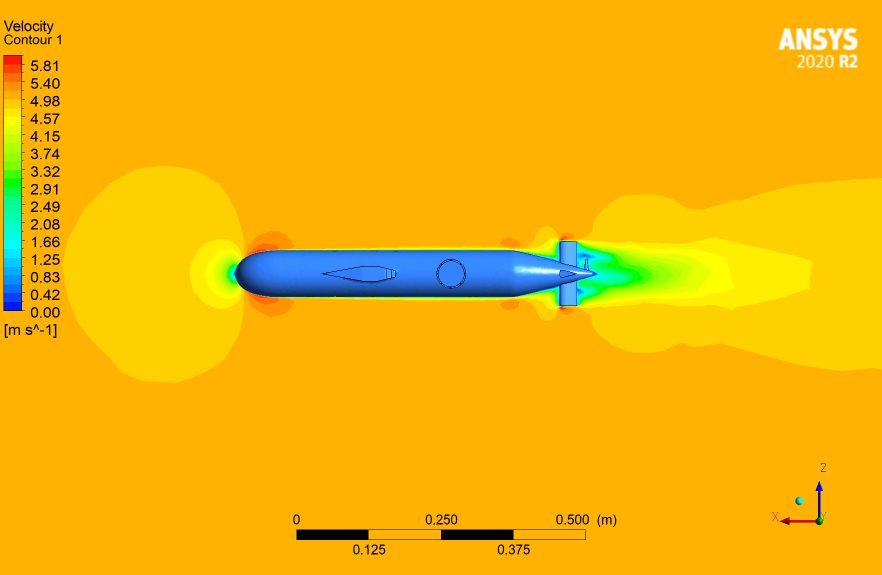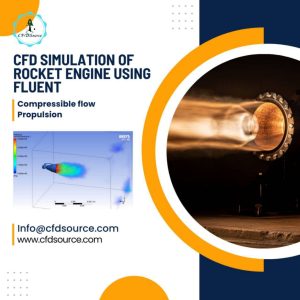In this article, we have introduced CFD projects for mechanical engineers and we have introduced examples of these projects. You can also see some of the projects done by our experts. To access more information about the projects, you can refer to the page of each project in the products section of the site.
read more : CFD Consulting Services
Introduction
Mechanical engineering has always been at the forefront of innovation, driving progress and shaping the modern world. From designing efficient engines to developing cutting-edge aerospace technologies, mechanical engineers play a pivotal role in pushing the boundaries of what is possible. In recent years, a powerful tool has emerged that has revolutionized the field, enabling engineers to analyze and optimize fluid flow phenomena with unprecedented precision and efficiency. This tool is Computational Fluid Dynamics (CFD).
CFD is a branch of fluid mechanics that employs numerical methods, algorithms, and advanced software to simulate the behavior of fluids and gases. By solving complex mathematical equations, CFD allows engineers to gain insights into the intricate flow patterns, pressure distributions, and heat transfer characteristics of fluid systems. This technology has become an invaluable asset for mechanical engineers, providing them with a virtual laboratory to explore and evaluate fluid dynamics phenomena in a wide range of industries.
One of the most significant advantages of CFD is its ability to save time and resources by reducing the need for extensive physical testing. Traditional experimental approaches often involve costly prototypes and time-consuming trials, whereas CFD offers a cost-effective alternative that enables engineers to iterate and optimize designs rapidly. By simulating fluid behavior in virtual environments, mechanical engineers can evaluate various design alternatives, predict performance, and identify potential issues early in development.
In the realm of mechanical engineering, CFD finds application across diverse sectors. From the automotive and aerospace industries to energy production, HVAC systems, and even biomedical engineering, CFD has become an indispensable tool for tackling complex challenges. It empowers engineers to optimize the aerodynamic performance of vehicles, improve the efficiency of heat exchangers, enhance engine combustion, design more effective cooling systems, and even analyze blood flow patterns in medical devices.
The projects undertaken by mechanical engineers using CFD are as varied as the industries they serve. From designing high-speed trains with minimal drag and improved energy efficiency to optimizing wind turbine blades for maximum power generation, CFD projects push the boundaries of innovation and offer sustainable solutions to real-world problems. Furthermore, CFD plays a crucial role in developing environmentally friendly technologies by aiding in the design of more fuel-efficient vehicles, reducing emissions, and optimizing energy consumption.
In this article, we will explore a selection of remarkable CFD projects that showcase this technology’s transformative power in mechanical engineering. We will delve into projects that have revolutionized the design process, improved system performance, and expanded our understanding of fluid dynamics. By highlighting these projects, we aim to inspire and provide valuable insights into the possibilities that CFD offers to mechanical engineers.
In conclusion, Computational Fluid Dynamics has emerged as a game-changing tool in mechanical engineering. Its ability to accurately simulate fluid behavior and optimize designs has revolutionized the industry, empowering engineers to solve complex problems and drive innovation. As we embark on this journey through notable CFD projects, we invite you to witness the transformative power of this technology and explore the frontiers of mechanical engineering.
CFD projects for mechanical engineering
As it was said, the use of CFD in mechanical engineering has a special place and importance, in the following we will discuss some of the projects that mechanical engineers do. You can also purchase these projects or similar projects by visiting the products section of our site. With the purchase of each of the projects, a comprehensive and complete educational video of the project’s steps will be sent to you along with the project files.
The aerodynamic design of aircraft:
Mechanical engineers can use CFD simulations to optimize the shape and performance of aircraft. By analyzing the flow patterns and pressure distributions around the aircraft at various speeds and altitudes, engineers can refine the aerodynamic design to reduce drag, improve fuel efficiency, and enhance stability.

Thermal Analysis of a Heat Exchanger:
CFD enables mechanical engineers to study heat transfer processes in complex systems such as heat exchangers. By simulating the fluid flow and heat distribution within the exchanger, engineers can optimize its design parameters, such as tube arrangement, fin geometry, and flow rates, to maximize thermal efficiency and minimize pressure losses.
Design of Wind Turbine Blades:
CFD simulations play a crucial role in the design and optimization of wind turbine blades. By analyzing the airflow around the blades, mechanical engineers can assess factors like lift, drag, and power output. This allows them to refine the blade shape, twist distribution, and surface roughness to enhance energy capture and increase the overall efficiency of wind turbines.
HVAC System Optimization:
CFD can aid in optimizing heating, ventilation, and air conditioning (HVAC) systems in buildings. By simulating the airflow and thermal comfort within a space, engineers can assess the performance of different air distribution designs, optimize air supply locations, and evaluate the effectiveness of heat transfer surfaces. This helps in designing HVAC systems that provide efficient and comfortable indoor environments.
Analysis of Blood Flow in Medical Devices:
Mechanical engineers can use CFD to study the behavior of blood flow within medical devices such as artificial heart valves or stents. By simulating the fluid dynamics and analyzing parameters like shear stress and pressure distribution, engineers can optimize the design of these devices to ensure proper functionality, minimize blood damage, and reduce the risk of complications.
Combustion Analysis in Internal Combustion Engines:
CFD enables engineers to study the combustion process within internal combustion engines. By simulating fuel-air mixing, ignition, flame propagation, and pollutant formation, mechanical engineers can optimize engine designs, enhance fuel efficiency, reduce emissions, and improve overall performance.
Hydrodynamic Analysis of Ships and Submarines:
CFD plays a vital role in ship design, allowing engineers to study the hydrodynamic performance of hulls and propellers. By simulating the flow around the ship, engineers can assess drag, resistance, wave formation, and maneuverability. This helps in optimizing the hull shape, propeller design, and other hydrodynamic features to improve vessel efficiency and reduce fuel consumption.
These examples illustrate how CFD projects in mechanical engineering encompass a wide range of applications, from aerodynamics and thermal analysis to biomedical engineering and marine engineering. By utilizing CFD simulations, mechanical engineers can unlock innovative solutions, enhance performance, and drive progress in their respective fields.
CFD source services
Our specialists are ready to carry out your projects with their many years of experience in doing CFD projects, especially CFD projects related to mechanical engineering. Of course, we have always sought to teach CFD concepts to our contacts. By doing your projects with our experts, you will also receive a comprehensive training video on how to do your simulation. Also, if you have any questions or doubts, our experts are always ready to answer you.
Also, we have done various educational projects at CFD Source, which you can see from the products section of the site. These projects are categorized into various industrial fields. To access the CFD projects for mechanical engineers, you can refer to the mechanical engineering category and view the related projects. By purchasing these projects, in addition to the step-by-step training video, software files will also be sent to you.



